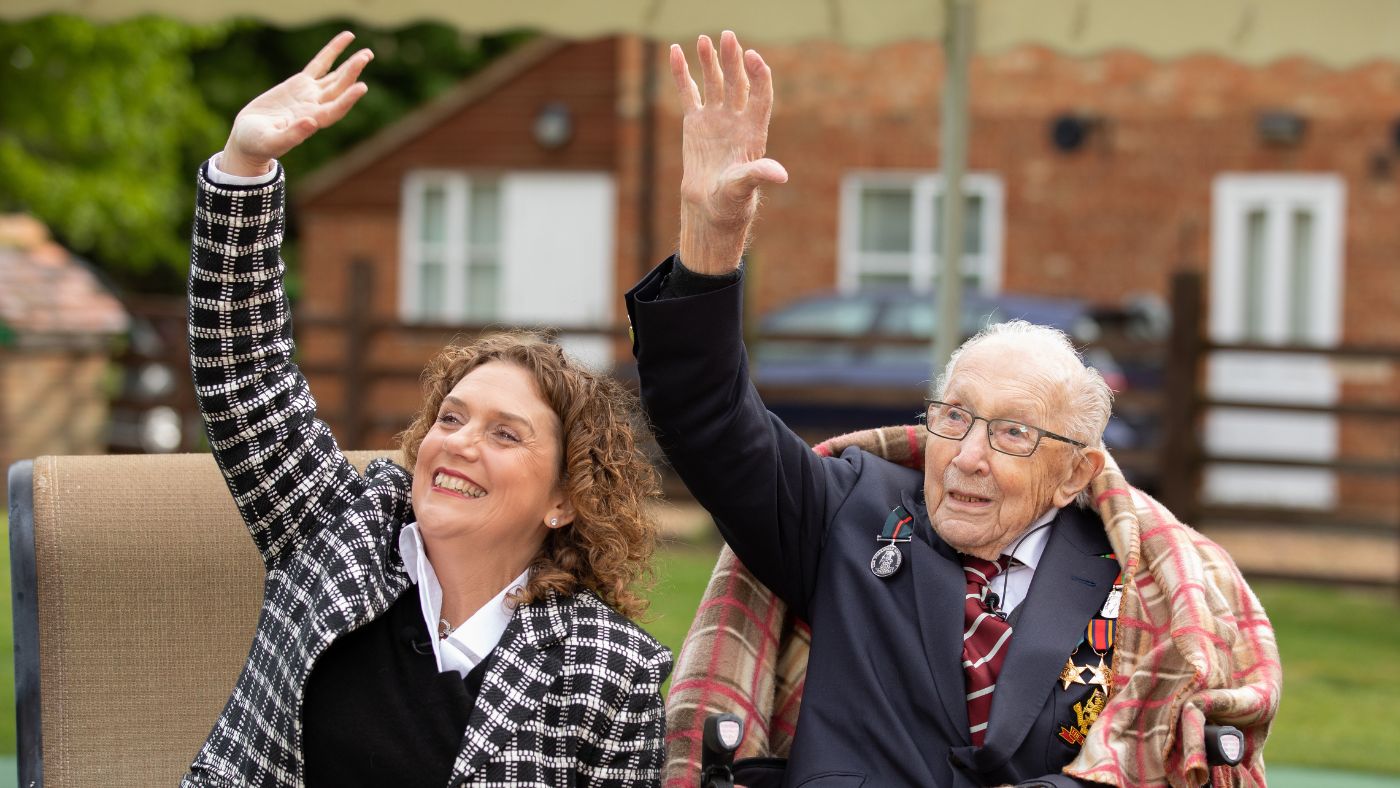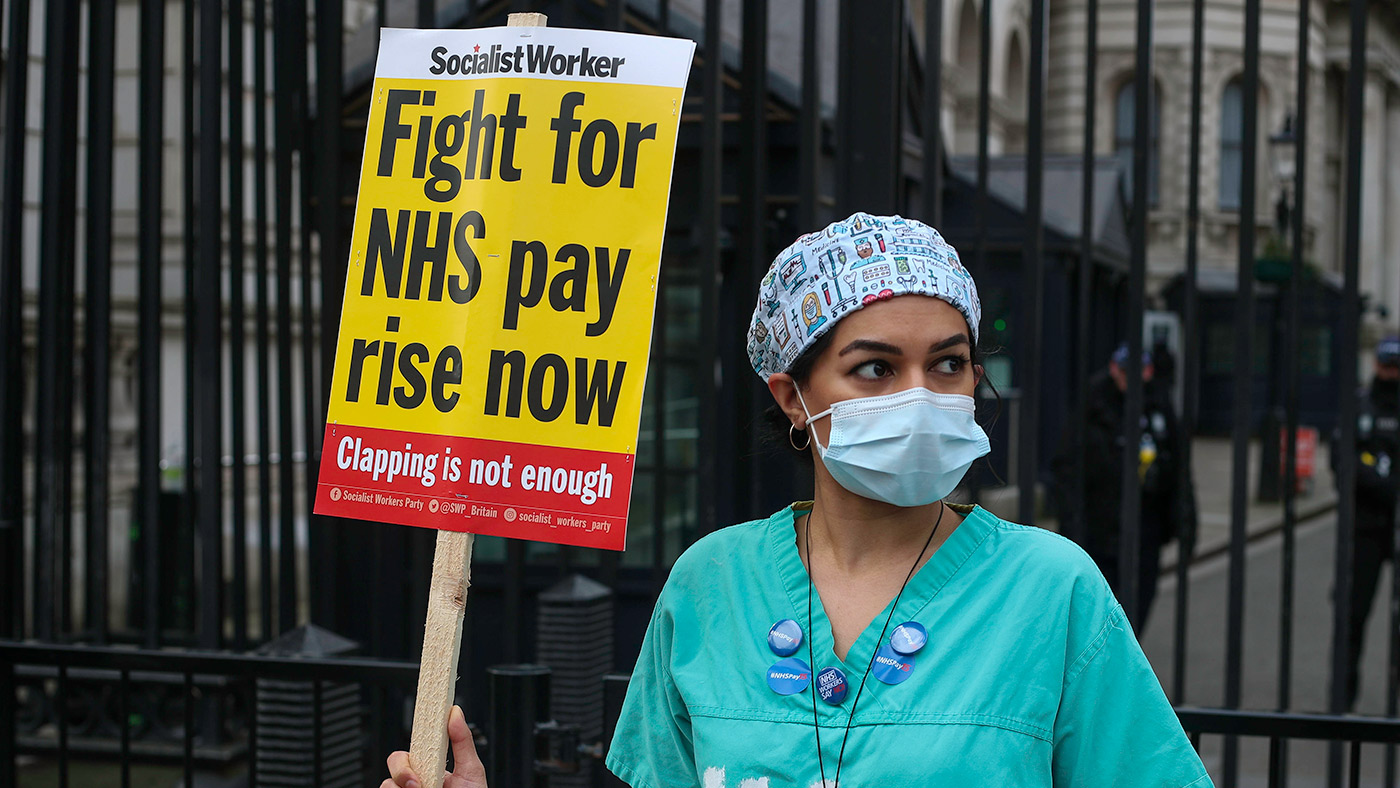‘A dangerous amendment to the Health and Care Bill must be defeated’
Your digest of analysis from the British and international press

- 1. No law should imply you’re better off dead than disabled
- 2. What the shocking images of Ukraine’s dead say about the media – and our biases
- 3. Keir Starmer is gaslighting women
- 4. Tory arms welcoming refugees come with a feel of the Windrush scandal
- 5. I used to hide my geeky interests from my Radio 1 listeners but now I’m a proud nerd
A free daily email with the biggest news stories of the day – and the best features from TheWeek.com
You are now subscribed
Your newsletter sign-up was successful
1. No law should imply you’re better off dead than disabled
Kevin Shinkwin at The Times
on an ‘insidious assumption’
Lord Shinkwin recently completed a consent form for major surgery. “There was no tick box asking if I wanted to be helped to die. The assumption was that, my disability notwithstanding, I wanted to live,” the Conservative peer writes at The Times. Today’s amendment to the Health and Care Bill “threatens that consensus”. “The insidious assumption that it is better to be dead than disabled increasingly permeates our debates. This amendment would enable it to inform our law.” The potential implications this would have “scare” this writer “to death”. When one is ill, “we are vulnerable to influence and hypersensitive” – “how easy it is to be told it is in ‘your best interest’ not to be treated when actually the subtext is that it would be in everyone else’s interests if you were dead”. This amendment is “dangerous” and “poses unacceptable risks to people when vulnerable”. It “must be defeated”.
The Week
Escape your echo chamber. Get the facts behind the news, plus analysis from multiple perspectives.

Sign up for The Week's Free Newsletters
From our morning news briefing to a weekly Good News Newsletter, get the best of The Week delivered directly to your inbox.
From our morning news briefing to a weekly Good News Newsletter, get the best of The Week delivered directly to your inbox.
2. What the shocking images of Ukraine’s dead say about the media – and our biases
Eugene Robinson at The Washington Post
on pictures of war
“Brave journalists have long risked their lives to document the horrors of war,” says Eugene Robinson at The Washington Post. Why, though, he asks, “has the coverage of the Russian invasion of Ukraine felt so intimate, so explicit and so shockingly gory?”. With regard to wars in Yemen and Syria, “we were not shown such raw and immediate images of the dead”. “It’s not that journalists didn’t see and document such atrocities in other wars,” Robinson continues. “News organisations traditionally have been squeamish about publishing images of people who had been killed in conflict,” but “that was before social media”. But there’s also “the unmistakable subtext of this coverage”, that “these are people just like us, and we could be at risk like them”. Robinson concludes by saying: “May the same empathy be extended to war victims everywhere who are every bit as human as the people of Ukraine.”
A free daily email with the biggest news stories of the day – and the best features from TheWeek.com
3. Keir Starmer is gaslighting women
Joan Smith at UnHerd
on a ‘polite fiction’
“Does Sir Keir Starmer know there’s a war on?” asks Joan Smith at UnHerd. Last week, the Labour leader visited Estonia with “a very important message” – “‘trans women are women’, he declared. ‘And that is not just my view – that is actually the law.” “It actually isn’t,” says Smith, “but let’s leave that fact aside for the moment.” She asks if this man is “stupid”, or “so committed to an extreme ideology that he has lost sight of its disastrous impact on women”. Starmer and the Labour leadership “say they believe in single-sex spaces, but what does that mean when they also insist that trans women are no different from natal women”, she continues. “To be cruelly frank, women are being gaslighted.” Starmer and colleagues “have confused a polite fiction – ‘trans women are women’ – with reality”. Back in the UK, “women feel utterly betrayed”, she says.
4. Tory arms welcoming refugees come with a feel of the Windrush scandal
Darren Lewis at The Mirror
on ‘parallel’ schemes
The government has tried to make “the Ukraine refugee crisis more about us than them”, writes Darren Lewis at The Mirror. With the “mythical visa centre in northern France appearing more like a mirage in a desert, the government have also adopted their tried and trusted technique of misdirection”. Michael Gove has told Brits to “open your hearts and take in a refugee”. “The thing is, members of the public were reaching out to evacuees even before the UK government were shamed into doing so,” he continues. But opening their doors comes with “safeguarding issues, checks and balances” that need to be in place. “There is no league table of compassion. There are no extra points.” Parallels between people taking Ukrainian refugees and “the shambolic Windrush Compensation Scheme” don’t “require that much of a leap”.
5. I used to hide my geeky interests from my Radio 1 listeners but now I’m a proud nerd
Greg James at The I News Site
on not-so-guilty pleasures
“Why does the world condition us into thinking that we’re not cool unless we’re doing the same things as everyone else?” asks BBC Radio 1 presenter Greg James. He thinks that now is “probably quite a nice time to exist as a teenage nerd”. James says he grew up “in a world where you had to hide any inkling that you might be interested or passionate about anything”, and his “long list of girl-repellers” included “being an airband radio enthusiast”, “old fashioned push lawn mowers” and “anything to do with cricket”. He thinks if he was 15 in 2022, “it’s feasible” that all of that “would have a good chance of going viral”. Nowadays, “a child on the other side of the world with a passion for bee-keeping for example, could encourage a whole new generation of young bee buffs”. James isn’t saying “we should all aim to go viral”, but “why wouldn’t you try and find as much joy as you possibly can?”
-
 Sepsis ‘breakthrough’: the world’s first targeted treatment?
Sepsis ‘breakthrough’: the world’s first targeted treatment?The Explainer New drug could reverse effects of sepsis, rather than trying to treat infection with antibiotics
-
 James Van Der Beek obituary: fresh-faced Dawson’s Creek star
James Van Der Beek obituary: fresh-faced Dawson’s Creek starIn The Spotlight Van Der Beek fronted one of the most successful teen dramas of the 90s – but his Dawson fame proved a double-edged sword
-
 Is Andrew’s arrest the end for the monarchy?
Is Andrew’s arrest the end for the monarchy?Today's Big Question The King has distanced the Royal Family from his disgraced brother but a ‘fit of revolutionary disgust’ could still wipe them out
-
 Nicolas Cage shrine could spark new religion
Nicolas Cage shrine could spark new religionTall Tales And other stories from the stranger side of life
-
 Captain Tom charity closes to donations amid daughter’s pool row
Captain Tom charity closes to donations amid daughter’s pool rowSpeed Read Hannah Ingram-Moore to appeal council order to demolish spa complex at her home
-
 Couple fined over loud sex in hotel
Couple fined over loud sex in hotelfeature And other stories from the stranger side of life
-
 The Week Unwrapped: Sex and health, the Earth’s core and another new year
The Week Unwrapped: Sex and health, the Earth’s core and another new yearpodcast Is the NHS failing British women? What’s going on at the centre of our planet? And what’s in a date?
-
 National nursing strike: should the patient ‘always come first’?
National nursing strike: should the patient ‘always come first’?Talking Point Recent YouGov poll found that 65% of public approves of strike action
-
 The science behind lab-grown blood
The science behind lab-grown bloodfeature Development of ‘absolute game changer’ could help those with sickle cell and other conditions
-
 ‘The UK’s malaise will not end with the Prime Minister’s exit’
‘The UK’s malaise will not end with the Prime Minister’s exit’Instant Opinion Your digest of analysis from the British and international press
-
 ‘Police tactics are not getting worse, they are simply being filmed’
‘Police tactics are not getting worse, they are simply being filmed’Instant Opinion Your digest of analysis from the British and international press